This post may contain affiliate links, which means I’ll receive a commission if you purchase through my links, at no extra cost to you. Please read my full disclosure for more information.
“Revolutionary Road” is the quintessential American novel, depicting the pitfalls of the American dream, outlining a young suburban couple’s vibrant expectations and their crashing dreams through the lens of marital degradation and self-deception.
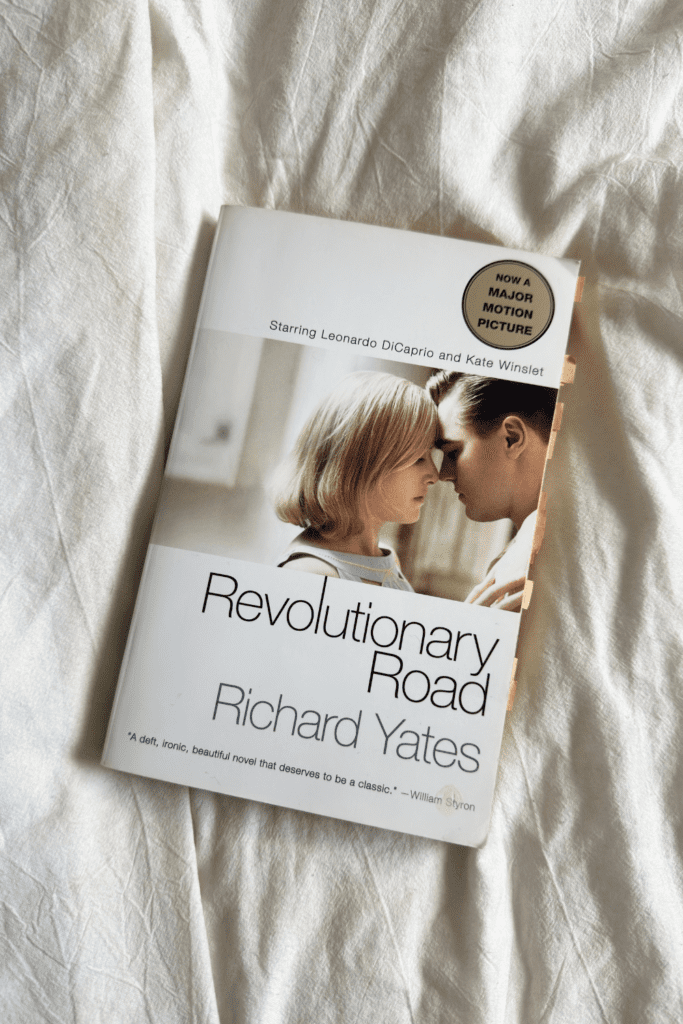
- Date finished: November 17th, 2021
- Pages: 463
- Format: Paperback
- Form: Novel
- Language read: English
- Series: Standalone
- Genre: Classics | Historical Fiction | Literary Fiction
“Revolutionary Road” follows the tragic marital breakdown of a young and talented suburban couple, Frank and April Wheeler, in 1950s America. Think of the movie Mariage Story but worse, as in more depressing.
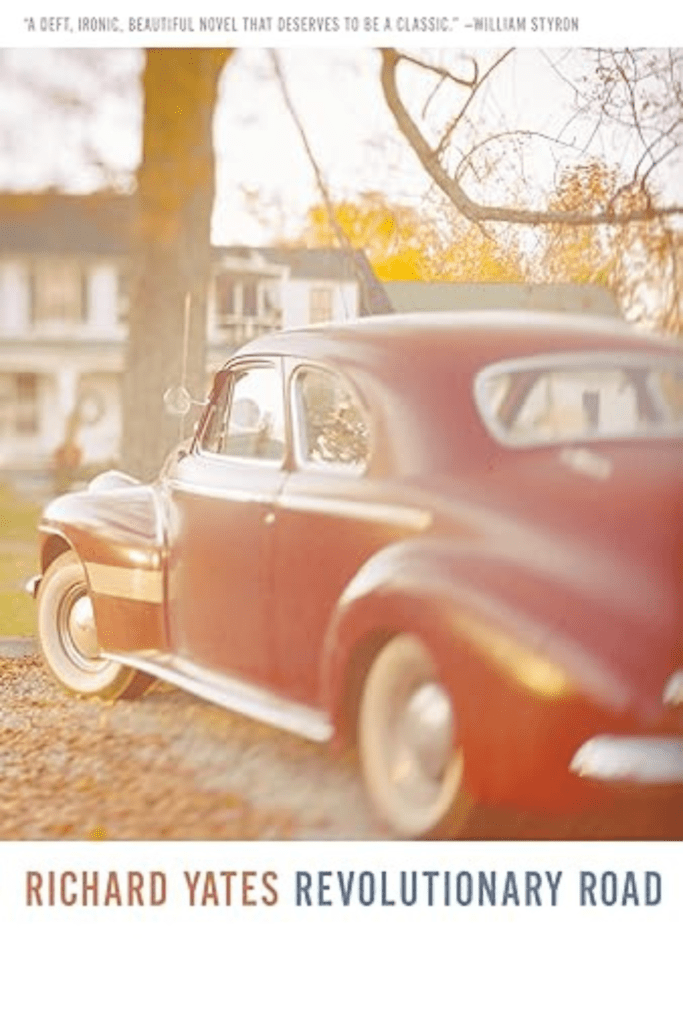
First things first, I have never seen characterization done this way before:
“He wasn’t often abel to do this, for most of her memories were crisply told and hard to sentimentalize. (“I always knew nobody cared about me and I always let everybody know I knew it.”)” p. 19
Talk about characterization! Two people so fundamentally wrong for each other, the Golden couple making each other miserable by the day.
In hopes of escaping his father’s fate, Frank Wheeler deludes himself into this successful big-shot by supplementing the grandiose image of his “manhood” (p. 52). In reality, he’s just as subpar and compliant as the other habitants of Revolutionary Road.
At first, it’s incredibly difficult to sympathize with Frank as he constantly emotionally and verbally degrades his wife, the beautiful April Wheeler. He’s unkind, even cruel at times, and what’s more, he shuts her up:
“It strikes me,” he said at last, “that there’s a considerable amount of bullshit going on here. I mean you seem to be doing a pretty good imitation of Madame Bovary here, and there’s one or two points I’d like to clear up. Number one, it’s not my fault the play was lousy. Number two, it’s sure as hell not my fault you didn’t turn out to be an actress, and the sooner you get over that little piece of soap opera the better off we’re all going to be. Number three, I don’t happen to fit the role of dumb, insensitive suburban husband; you’ve been trying to hang that one on me ever since we moved out here, and I’m damned if I’ll wear it. Number four —” p. 26
Might I remind you that This is America! in the 50s.
*SPOILERS AHEAD*
Reading the passage above, one can easily deduce by the Madame Bovary comparison that of April Wheeler’s fate. Despite having highlighted the passage, I, on the other hand, did not give this connection a second glance while reading.
As a woman, reading this book and April’s eventual death was sobering. At the time of reading, I had just graduated from university and was dealing with my own questions about my future: Would I be moving to Paris soon? Is my partner manipulative? Do I even want children, like ever? (Spoiler: no, yes, and no, I don’t think so. My heart is still set on Paris though – that much hasn’t changed since.)
Part of the friction between the couple is due to gender expectations. April is a dreamer but she’s also brave, ready to take that unknown step towards happiness, i.e., starting over and moving to Paris. But she can’t. Confined by her gender limitations, her desire to be loved, her husband’s dishonesty, and societal expectations. Meanwhile, Frank could potentially go forth and prosper. He could follow through with the plan and the grand ideas of his youth, but he’s complacent, and let’s call it as it is; characteristically lazy. To him, being a man – and the respect garnered by its subsequent roles – is enough:
“Don’t you know? You’re the most valuable and wonderful thing in the world. You’re a man.” p. 121
Essentially, Frank’s all talk, no bite. He himself says so, “Oh, hell, I was a little wise guy with a big mouth. I was showing off a lot of erudition I didn’t have” (p. 119). Yet, April still believes in him – prompted to keep the faith as he sometimes embarks on his soliloquies, [“This whole country’s rotten with sentimentality.” p. 135] that would make any person (with limited access to his thoughts) to believe that he’s ready for change.
And here we are alas, we come to the saddest part of this story. April Wheeler’s deteriorating mental health. With very little support and a lot of blame from her husband’s crafty tongue, she bears the entire burden of her fate. She didn’t want children – neither did the hypocritical lying Frank – and now she’s faced with her “denial of womanhood” (p. 244) when she’s pregnant with their third – unwanted – child.
From here, enter one of the most interesting intuitive characters, John Givings, a neighbour’s son visiting from the psych-ward after suffering a mental break from his real estate job. However, he’s the only one that can see right through the couple’s rotten core. He notes that the couple didn’t move to Paris because of Frank:
“Huh?” he persisted. “Little woman decide she isn’t quite ready to quit playing house? Nah, nah, that’s not it. I can tell. She looks too tough. Tough and female and adequate as hell. Okay, then; it must’ve been you.” And he swung around to Frank. “What happened?” p. 301
In the end, as revealed by John’s last home visit, April too has been lying to herself this whole time. Confronting such a truth is too heavy to bear. She never leaves Frank, they never move to Paris, and they never live out their dreams of a happy life. This costs her life. Unaided and voiceless, she takes her own life – and tries to take the one of her unborn child, having been talked out of the abortion a month prior by Frank.
And all because, in a sentimentally lonely time long ago, she had found it easy and agreeable to believe whatever this one particular boy felt like saying, and to repay him for that pleasure by telling easy, agreeable lies of her own, until each was saying what the other most wanted to hear—until he was saying “I love you” and she was saying “Really, I mean it; you’re the most interesting person I’ve ever met.” p. 320
“Revolutionary Road” remains one of the best suburban novels I’ve ever read with great characterization and fascinating marital and intrapersonal drama at play. This is one of the books everyone should read in their early 20s… well before it all can seem “too late” and too provokingly honest to face.
Also, I read this book as part of “YOU” Season 3 Inspired Reading List (Reading Vlog). You can watch it here.
“if you wanted to do something absolutely honest, something true, it always turned out to be a thing that had to be done alone.” p. 327
⭐⭐⭐⭐

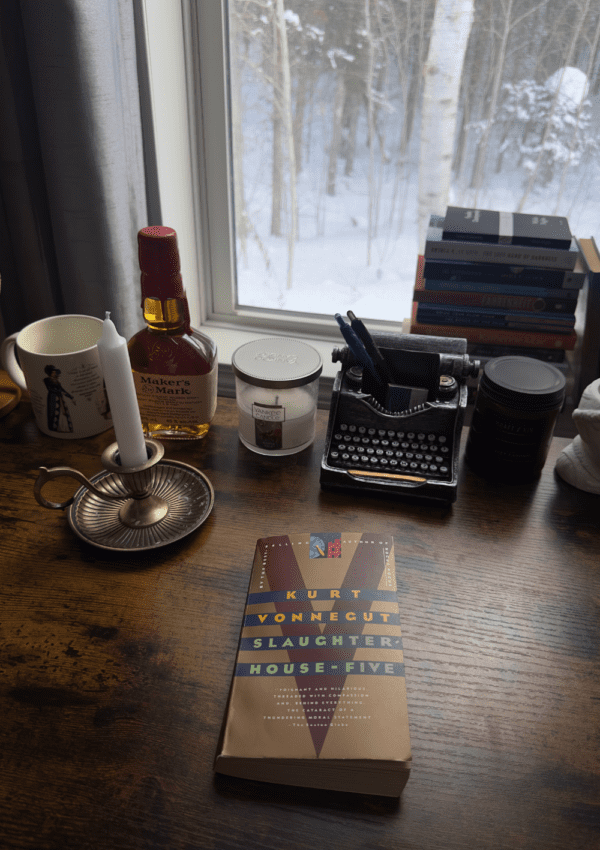
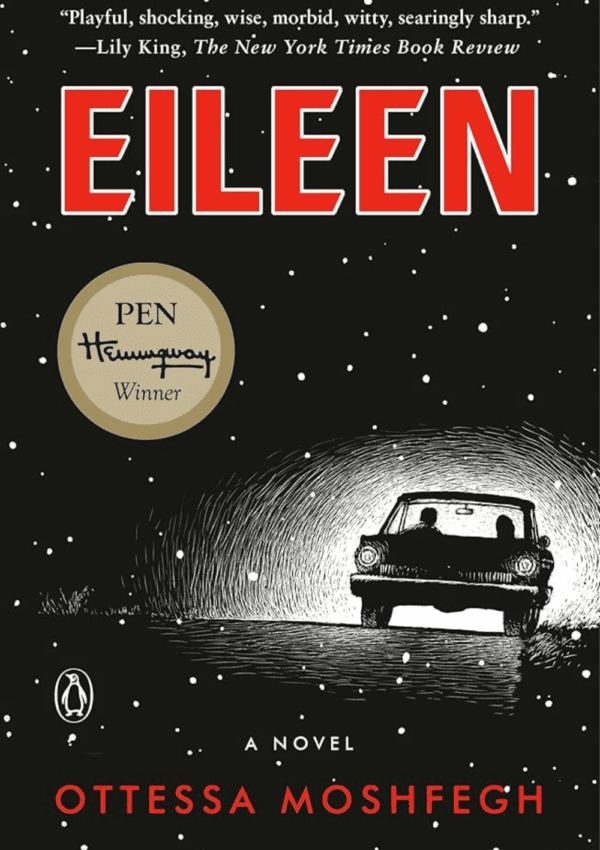
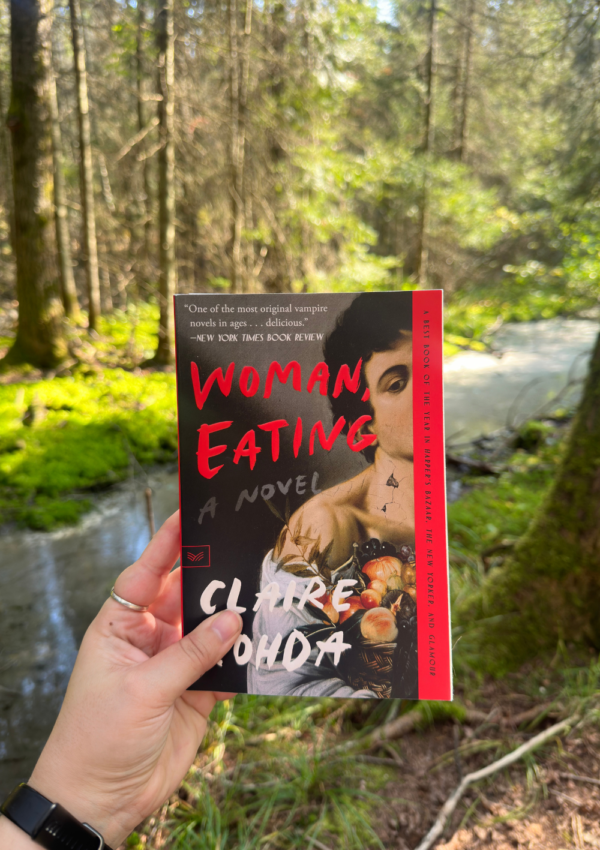
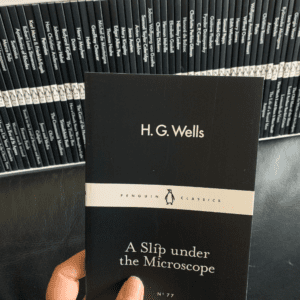

Leave a Reply